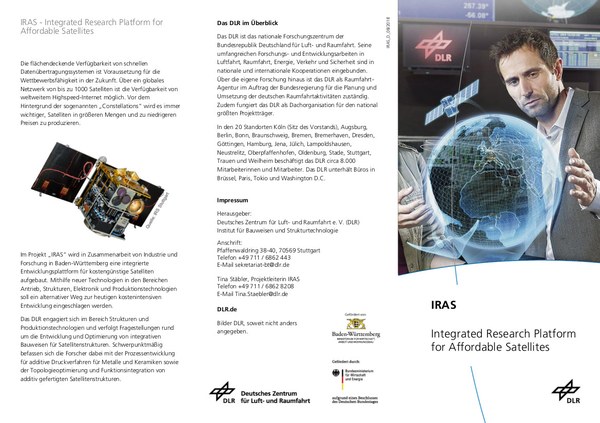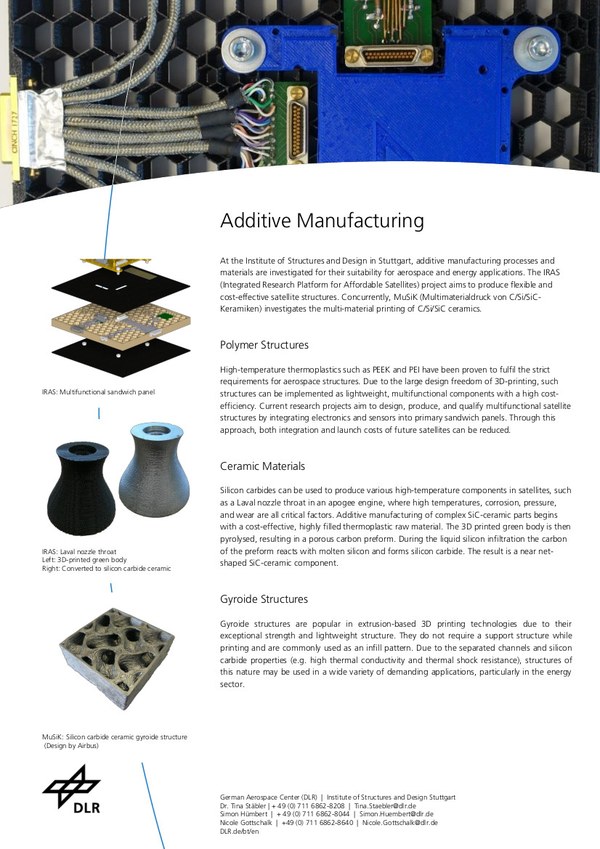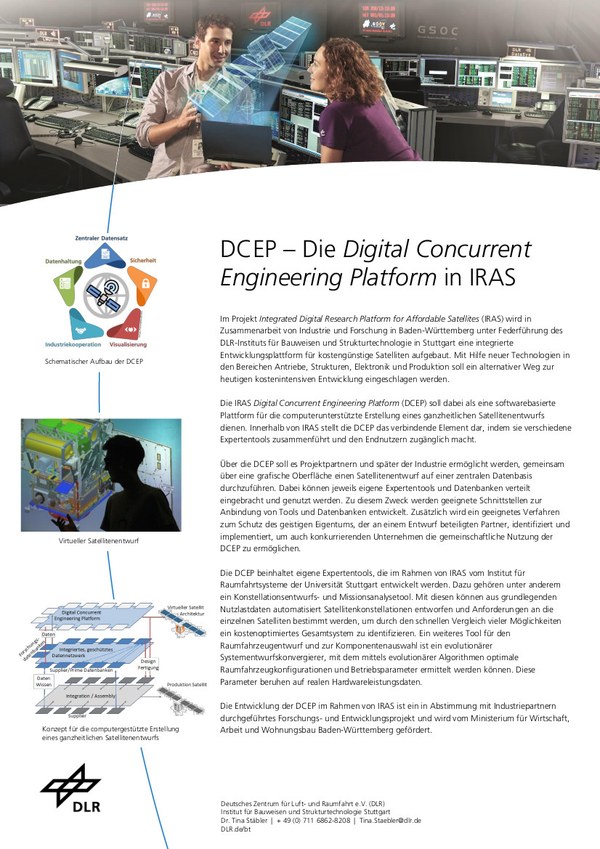IRAS – Integrated Digital Research Platform for Affordable Satellites
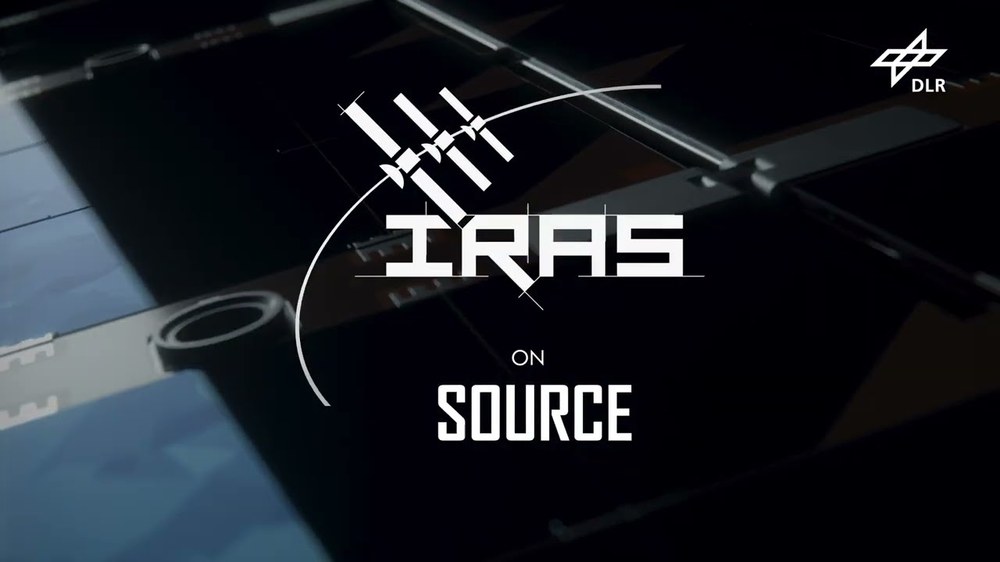
Your consent to the storage of data ('cookies') is required for the playback of this video on Youtube.com. You can view and change your current data storage settings at any time under privacy.

DLR; University of Stuttgart, IRS
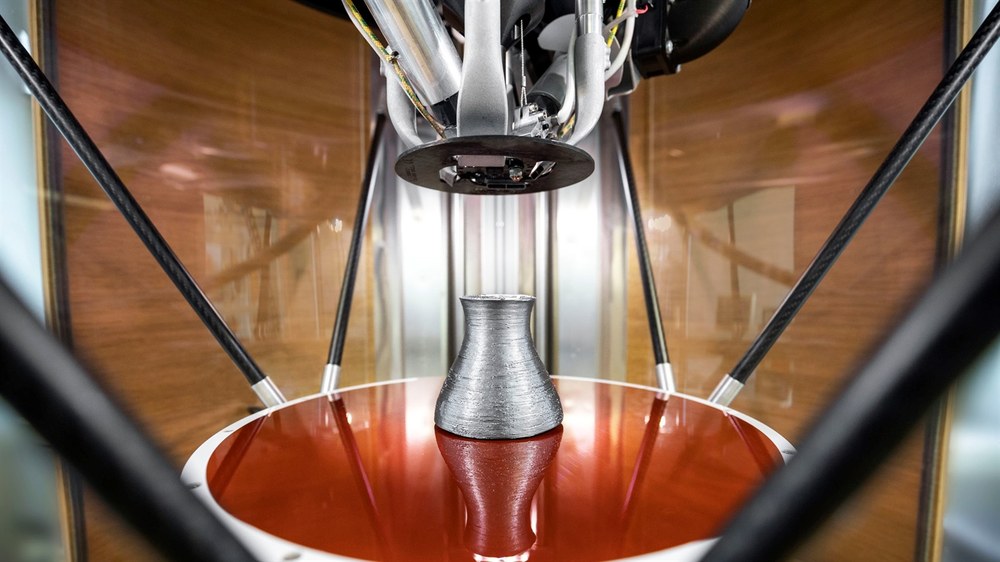
Duration: 2016-2024
The nationwide availability of fast data transfer systems is a prerequisite for being able to compete in the future. By means of a global network of hundreds to up to 1,000 satellites, it is possible to make high-speed Internet available worldwide. The economic operation of such a satellite network depends on the provision of satellites at economically acceptable prices. Against the background of the so-called "constellations", it is becoming increasingly important to be able to produce them in higher quantities and at lower prices.
In the Integrated Digital Research Platform for Affordable Satellites (IRAS) project, an integrated development platform for low-cost satellites is being set up in cooperation between industry and research in Baden-Württemberg and managed by the Institute of Structures and Design of the German Aerospace Center (DLR). Using new digital, propulsion, structural, electronic and production technologies, an alternative path to today's cost-intensive development is to be taken. DLR engages in the field of structures and production technologies and pursues questions around the development and optimisation of integrative construction methods for satellite structures. Researchers focus on process development for 3D printing processes for metals and ceramics as well as topology optimisation and functional integration of 3D printed satellite structures.
The IRAS Digital Concurrent Engineering Platform (DCEP) shall serve as a software-based platform for the computer-aided generation of a holistic conceptual satellite design. Within IRAS, the DCEP represents the connecting element by combining the distinct expert tools and making them accessible to the end user.
The developed technologies within IRAS will be integrated as payloads on the satellite SOURCE, a 3U CubeSat developed by the students small satellite group KSat and the Institute of Space Systems of the University of Stuttgart, with the goal of successfully demonstrating the IRAS technologies on a mission. Another small satellite with an approx. 80 kg mass is being planned.
The project is conducted together with the Fraunhofer Institute for Manufacturing Engineering and Automation (IPA) and the Institute of Space Systems of the University of Stuttgart (IRS). Furthermore, ten industrial enterprises situated in the area of Baden-Württemberg, Germany, are engaged in IRAS. The project is funded by the Ministry of Economic Affairs, Labour and Tourism Baden-Württemberg.
Supported by:


